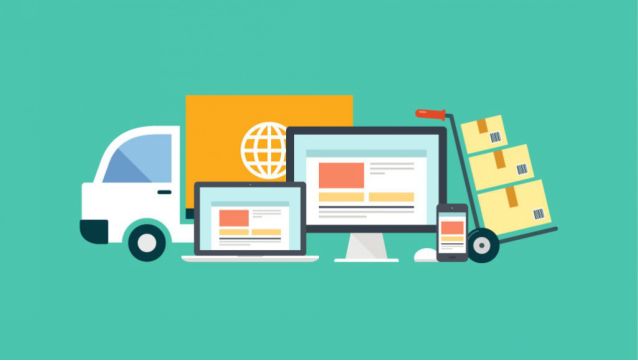Showing all posts tagged "Custom Application"
Why Use Cloud-Based Order Management System?

Order Management System or OMS is a great solution for retailers, e-commerce businesses to track the orders received from customers in real-time. OMS also tracks the customer information and warehouse inventory on hand, making it easy to manage the entire supply chain. Many enterprises use messy spreadsheets for managing their orders, but that is not the best practice you should follow. Should you buy an OMS product or develop your own OMS and outsource java development services? We will solve the dilemma by first figuring out how OMS fits into your operations.
First let’s answer the below questions:
- Is your business creating orders based on the information received?
- Are you notifying users about the orders being created?
- Is there a warehouse managing your orders?
- Are you generating documents with transaction data after the orders are executed?
- Are you sharing the order documents to the accounting system?
Is your answer "Yes"? then OMS is a perfect fit for your business. Order management includes everything from organizing the orders your receive, stock movements, CRM, returns and refunds, billing and payments and order processing.
How different is order management compared to inventory management?
Not quite. OMS does overlap some aspects of inventory management - like tracking of enough stock for fulfilling the order, or tracking the movement of stock as orders are shipped. Both inventory & order management systems track and take charge of different parts of the supply chain workflow.
Inventory management is focused on the past orders, helping to forecast the future demand, sales trends, and order the right amount of inventory stock, making your inventory efficient. Order management is focused on organizing your real-time orders.
Should the OMS be offline or in the cloud?
The OMS helps with the fulfillment process mentioned above. You can easily track orders from customers, process and organize the fulfillment when a customer purchases something from you until it’s shipped off. It also manages vital information about your customers and sales teams. If your business is growing at rapid pace and requires flexibility and scalability then choosing cloud is a good option. Offline is used by small enterprises working in startup phase and trying to establish their brands in the market. Both cloud and offline are reliable systems to manage your orders. And they are far better than using spreadsheets or another manual system, helping you save time and correcting errors that could definitely be used for something that will grow your business instead of just maintain it!
Cloud Order Management System delivers following benefits:
- Helps in delivering efficient fulfillment process: As all the data is in one place, your fulfillment process will become more efficient with fewer delays. You will start to track better and achieve easy access to your orders and know their statuses.
- Be more organized: You will achieve organized sales orders, making the sales cycle shorter, and minimizing time to process order paperwork. The cloud OMS guarantees fewer errors from manual entry and saves time in sharing order status updates. You also get paid faster with an organized billing data that you can use to quickly make financial decisions.
- Improved tracking: Managing orders in the cloud means you can track orders in real-time, getting updated information and the knowledge of the current state of any of your orders at any time.
Rishabh Software’s mobile order management solution has organizations improve efficiency, reduce errors, and achieve faster supply chain process. Feel free to evaluate the solution. Have you tried any other OMS? Let us know your thoughts in the comments below.
Posted on January 16th, 2017

